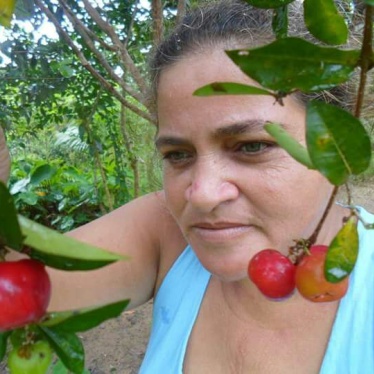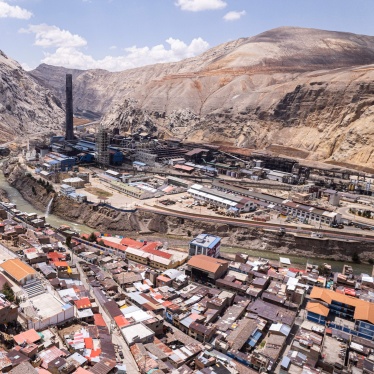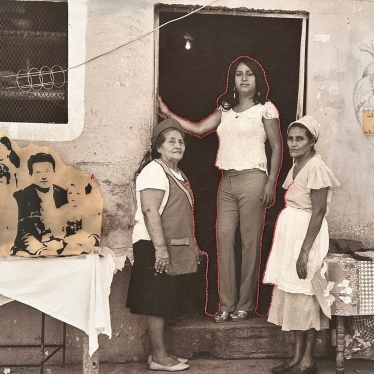(Washington, DC) – The September 23, 2015 agreement between the Colombian government and Revolutionary Armed Forces of Colombia (FARC-EP) guerrillas would deny justice to thousands of victims of grave violations of human rights and humanitarian law by allowing their abusers to escape meaningful punishment. While the “Special Jurisdiction for Peace” would create important incentives for violators to confess their crimes, it would also allow those responsible for mass atrocities to avoid spending any time in prison, Human Rights Watch said.
Under the agreement announced by President Juan Manuel Santos and leaders of the FARC, a new Peace Tribunal would try those responsible for grave crimes committed during the armed conflict. Those responsible for crimes against humanity and serious war crimes who cooperate with the new judicial system and confess their crimes would spend between five and eight years under “special conditions” that would entail “effective restraint of liberty,” but no prison time.
“We fully support Colombia’s efforts to obtain a peace agreement that would end years of bloodshed, including by finding innovative ways to promote accountability for human rights abuses,” said Jose Miguel Vivanco, Americas director at Human Rights Watch. “But while the special jurisdiction would encourage confessions, it would also allow those most responsible for mass atrocities to completely avoid prison, denying their victims the right to justice in any meaningful sense of the word.”
Since its formation in the mid-1960s, Colombia’s largest guerrilla insurgency, the FARC, has been responsible for systematic atrocities against civilians. The guerrillas have killed and abducted civilians, taken hostages, carried out enforced disappearances, used child soldiers, conducted grossly unfair trials, forcibly displaced civilians, and subjected captured combatants to cruel and inhuman treatment.
The new Tribunal for Peace would also have jurisdiction over abuses by the Colombian armed forces, which include the systematic execution of as many as 3,000 civilians by army brigades across Colombia between 2002 and 2008. Under pressure from superiors to show “positive” results and boost body counts in their war against guerrillas, soldiers and officers abducted victims or lured them to remote locations under false pretenses – such as with promises of work. The soldiers killed them, placed weapons on their lifeless bodies, and then reported them as enemy combatants killed in action.
The government announced that members of the armed forces could participate in the Special Jurisdiction under terms that are “differentiated” but “equitable” to those governing participation by guerrillas.
Colombia has a legal obligation under international law to provide punishments for human rights violations that are proportionate to the gravity of the crimes. The United Nations Convention against Torture, for example, notes that crimes under the convention should be “punishable by appropriate penalties which take into account their grave nature.” The Inter-American Court has held that “the punishments established for crimes involving acts that constitute serious human rights violations must be appropriate to their gravity,” and that they must “truly contribute to prevent impunity.”
Since 2004, the Office of the Prosecutor of the International Criminal Court (ICC) has been conducting a preliminary examination of crimes in Colombia that could fall within the court’s jurisdiction. In 2014, the ICC prosecutor reported that it had “informed the Colombian authorities that a sentence that is grossly or manifestly inadequate, in light of the gravity of the crimes and the form of participation of the accused, would vitiate the genuineness of a national proceeding, even if all previous stages of the proceeding had been deemed genuine.”
“It is difficult to imagine how an arrangement in which those most responsible for mass atrocities avoid any prison time could survive a careful review by the ICC prosecutor,” Vivanco said.
Colombia: Dealing Away Justice
Government, FARC Agree to No Prison Time for Atrocities
Your tax deductible gift can help stop human rights violations and save lives around the world.
Most Viewed
-
April 23, 2024
UK’s Harmful Rwanda Bill to Become Law

-
November 25, 2019
A Dirty Investment

-
April 24, 2024
EU Parliament Approves Supply Chain Law

-
April 27, 2021
A Threshold Crossed

-
June 24, 2022
Q&A: Access to Abortion is a Human Right




